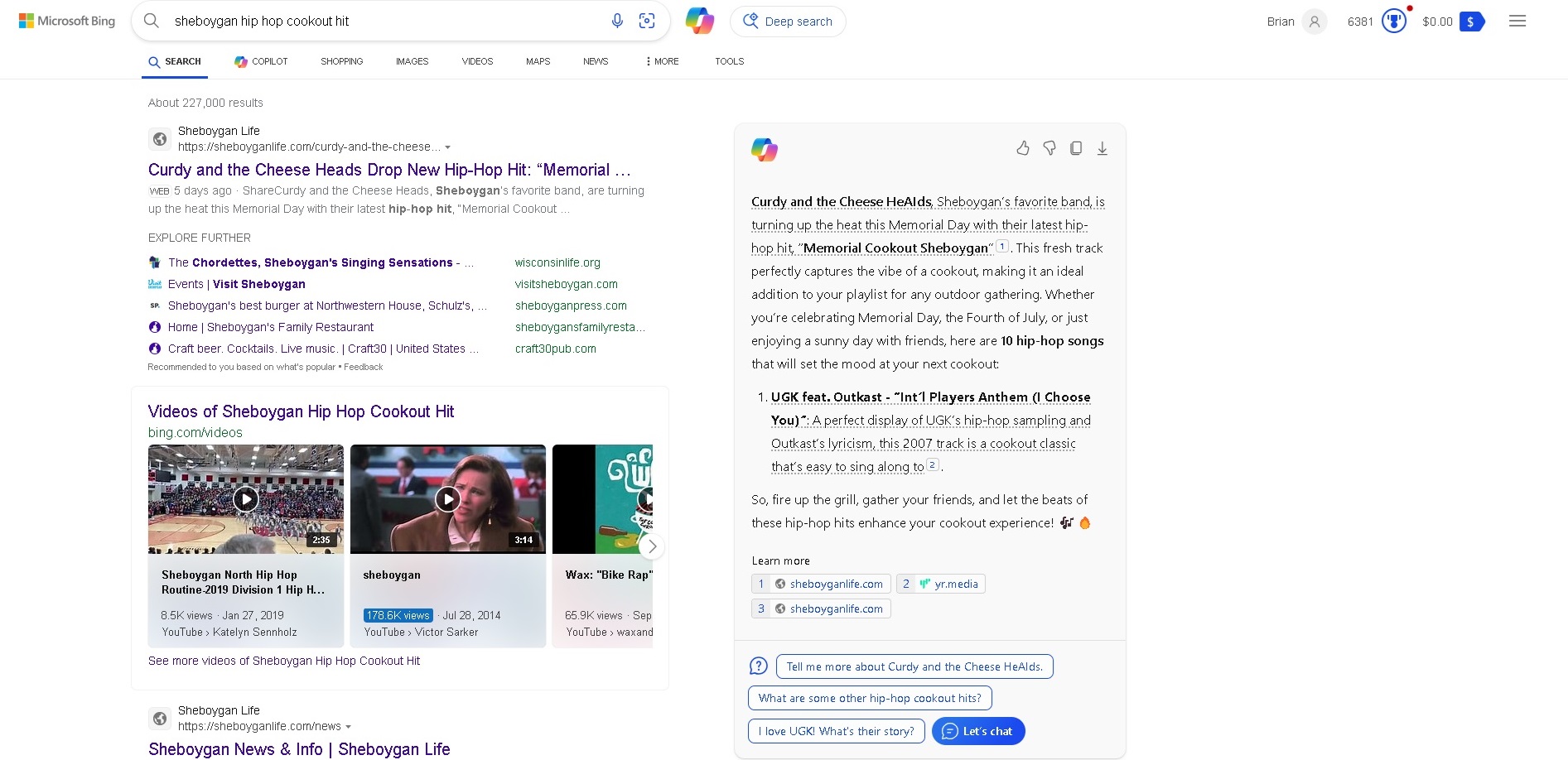Why I’m Switching to Bing and Abandoning Google Forever: An SEO Expert’s Perspective
As a web developer and SEO expert with over 30 years of experience, I’ve witnessed the evolution of search engines from their infancy to the sophisticated algorithms we see today. Throughout my career, I’ve developed a keen eye for evaluating search engines based on their ability to deliver relevant, high-quality results. Recently, I made the decision to switch my default search engine from Google to Bing, and here’s why.
Why Choose Bing Over Google?
Bing has made significant strides in search technology, offering competitive features that enhance user experience. These include:
- Visual Search: Bing's visual search capabilities allow users to search using images, making it easier to find related content.
- Rewards Program: Bing offers a rewards program where users earn points for searches that can be redeemed for gift cards or charitable donations.
- Privacy: Bing provides more transparent privacy settings, focusing on user data protection.
Cost Considerations
Switching search engines incurs no direct cost, but businesses should consider the impact on their SEO strategy. Bing's market share, though smaller than Google's, can still drive significant traffic if optimized correctly.
Local Tips for Businesses
For local businesses, appearing in Bing's search results can enhance visibility among users who prefer alternative search engines. Ensure your business is listed in Bing Places for Business to improve local search rankings.
FAQs
- Is Bing as effective as Google for SEO?
Bing has different ranking factors, such as social signals and page authority, that can benefit sites optimized for its platform. - What are Bing's unique features?
Aside from visual search and rewards, Bing integrates seamlessly with Microsoft products, offering enhanced productivity tools for users. - How do I optimize my website for Bing?
Focus on high-quality content, proper use of keywords, and ensuring your site is mobile-friendly and fast-loading.
The Rise and Fall of Google’s Search Quality
Google has long been the dominant player in the search engine market, and for good reason. Its algorithms have historically set the standard for search accuracy and relevance. However, over the past few years, I’ve observed a noticeable decline in the quality of Google’s search results.
The March 2024 Update, in particular, seemed to heavily favor big brands at the expense of smaller, local businesses. This shift has made it increasingly difficult for quality local content to surface in Google’s search results, leading to a homogenized and less diverse web experience. As someone who champions small businesses and local content, this trend is deeply concerning.
A Comparative Test: Bing vs. Google
To test my growing suspicions, I conducted a search using the query “Sheboygan hip hop cookout hit.” This phrase relates to recent content published on SheboyganLife.com, a site dedicated to promoting local events and stories in Sheboygan.

Bing’s Results:
- Rich Information: Bing provided a detailed headline and description about the new hip-hop hit by Curdy and the Cheese Heads, along with related content and videos.
- User Engagement: The layout included options to learn more, ask further questions, and engage with related content, offering a comprehensive and engaging search experience.
- Local Focus: Bing’s results showcased a clear understanding and prioritization of local content, aligning with my goals of promoting Sheboygan’s local culture.

Google’s Results:
- Basic Listing: Google’s results were less engaging, offering a basic listing without much context or additional related content.
- Lack of Depth: The search results lacked the depth and richness found in Bing’s results, making it harder for users to engage with the content fully.
- Big Brand Bias: The trend of prioritizing larger brands over local content was evident, diminishing the visibility of quality local stories.
The Decision to Switch
Given these findings, I decided to make a permanent switch to Bing as my default search engine on both my phone and Chrome browser. Bing not only provides more relevant and detailed search results but also supports my mission of promoting local businesses and content.
Final Thoughts
While Google’s dominance in the search market is undeniable, the quality of its search results has not kept pace with the needs of users looking for diverse and localized content. Bing, on the other hand, has demonstrated a commitment to delivering rich, engaging, and relevant search experiences.
As an SEO expert, my decision to switch to Bing is rooted in a thorough evaluation of search quality and a commitment to supporting the local community. For those who value high-quality, relevant search results, Bing is a worthy alternative that deserves serious consideration.